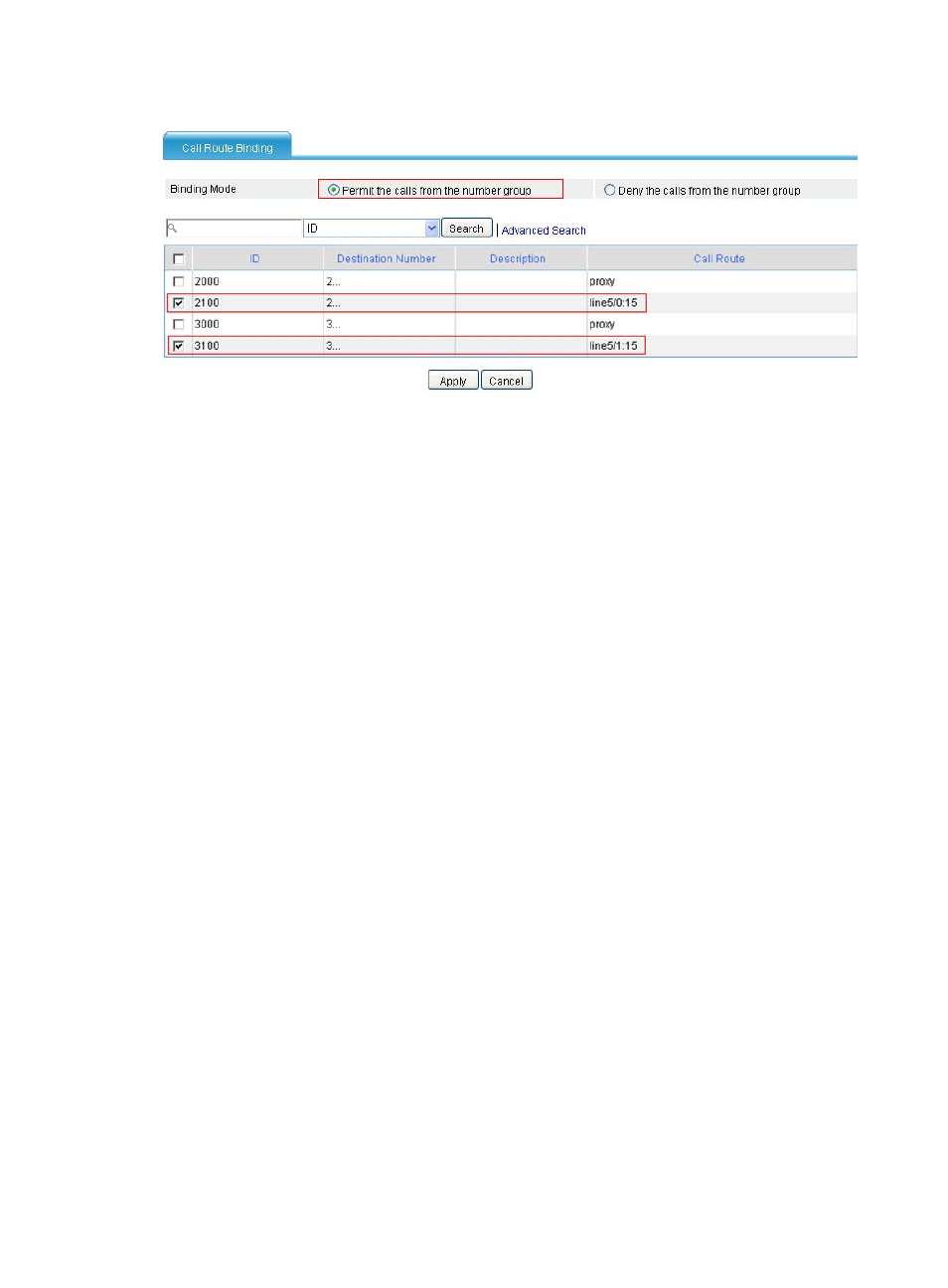Configuring router b, Configuring router c, Configuring number substitution – H3C Technologies H3C MSR 50 User Manual
Page 657: Network requirements

272
Figure 662 Call route binding page (II)
12.
Select Permit the calls from the number group for Binding Mode.
13.
Select the checkboxes of call routes 2100 and 3100.
14.
Click Apply.
Configuring Router B
Add a call route:
1.
Specify the call route ID as 2100, the destination number as 2…, and the trunk route line as
1/0:15 on the call route configuration page.
2.
Select the Send All Digits of a Called Number option in the Called Number Sending Mode area
when you configure the advanced settings of this call route.
Configuring Router C
Add a call route:
1.
Specify its call route ID as 3100, the destination number as 3..., and the trunk route line as 1/0:15
on the call route configuration page.
2.
Select the Send All Digits of a Called Number option in the Called Number Sending Mode area
when you configure the advanced settings of this call route.
Configuring number substitution
Network requirements
As shown in
, there is a PBX to form a local telephony network at place A and place B,
respectively. The following requirements should be met:
•
These two local telephony networks communicate through two voice gateways. Subscribers in one
PBX network can make ordinary calls to remote subscribers in the other PBX network over a VoIP
network.
•
Configure two FXO trunk lines between each router and its PBX and enable hunt group to realize
trunk line backup.
•
There are a financial department, market department, and sales department at both place A (area
code 021) and place B (area code 010). A department at place A only needs to know the telephone
numbers of the local departments and the area code of place B when calling a department at place
B. For example, the financial department at place B can dial 3366 to call the local market
